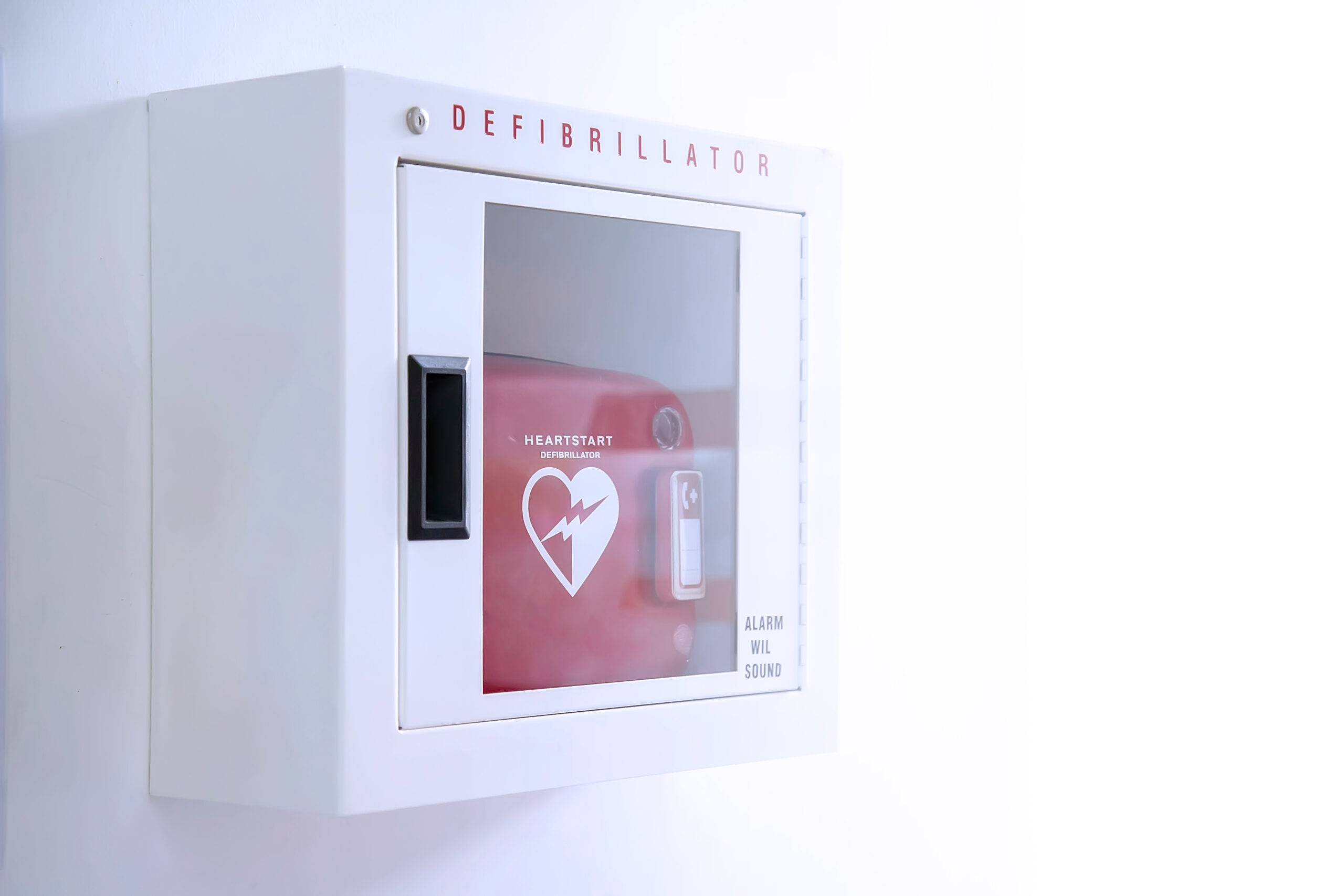
An AED in your school could mean the difference between life and death. Photo: AdobeStock by witsawat.
<h2><span class="TextRun SCXW53962690 BCX0" lang="EN-NZ" ><span class="NormalTextRun SCXW53962690 BCX0">Cardiac arrest is a leading cause of death in Aotearoa New Zealand, with approximately five people </span><span class="NormalTextRun SCXW53962690 BCX0">a</span><span class="NormalTextRun SCXW53962690 BCX0"> day requiring treatment for an out-of-hospital cardiac arrest.<sup>1</sup></span></span></h2>
<p><span class="TextRun SCXW53962690 BCX0" lang="EN-NZ" > <span class="NormalTextRun SCXW53962690 BCX0">That’s</span><span class="NormalTextRun SCXW53962690 BCX0"> more than 2000 people a year, </span><span class="NormalTextRun SCXW53962690 BCX0">with only 10</span><span class="NormalTextRun SCXW53962690 BCX0"> per cent</span><span class="NormalTextRun SCXW53962690 BCX0"> of New Zealanders surviving to 30 days, or four weeks after the incident. Sudden cardiac arrest can happen to anyone of any age, including children</span><span class="NormalTextRun SCXW53962690 BCX0">. </span></span><span class="EOP SCXW53962690 BCX0" data-ccp-props="{";201341983";:0,";335559739";:160,";335559740";:259}"> </span></p>
<p><b>Read the Term 1 edition of <i>School News</i> <a href="https://www.schoolnews.co.nz/latest-print-issue/" target="_blank" rel="noopener noreferrer" data-auth="NotApplicable" data-safelink="true" data-linkindex="0">HERE.</a></b></p>
<p><span data-contrast="auto">Cardiac arrest is a highly time-sensitive medical event, with survival rates dependent on bystander action and rate of emergency response. In addition to CPR, early defibrillation of patients was shown to improve outcomes, with 45 per cent of those receiving defibrillation from an automated external defibrillator (AED) surviving to 30 days, compared to only 8 per cent of those that did not receive early defibrillation from an AED.</span><span data-contrast="auto">1</span><span data-ccp-props="{";201341983";:0,";335559739";:160,";335559740";:259}"> </span></p>
<p><span data-contrast="auto">With schools often being the centre of communities, having an accessible AED could mean the difference between life and death should a sudden cardiac arrest occur on or near school grounds. Although they can seem intimidating, AEDs are designed to be useable by someone with little to no training. They deliver visual and voice prompts to guide a user through an emergency. All AEDs have the same essential function, so when considering an AED to purchase, consider your school or kura’s specific needs. Some may be smaller for ease of transport, and some may have a more user friendly design. </span><span data-ccp-props="{";201341983";:0,";335559739";:160,";335559740";:259}"> </span></p>
<figure id="attachment_25918" aria-describedby="caption-attachment-25918" style="width: 2560px" class="wp-caption alignnone"><img class="size-full wp-image-25918" src="https://www.schoolnews.co.nz/wp-content/uploads/2023/05/AdobeStock_122882861-scaled.jpeg" alt="" width="2560" height="1703" /><figcaption id="caption-attachment-25918" class="wp-caption-text">A cardiac event could happen at anytime. Photo: AdobeStock by pixelaway.</figcaption></figure>
<p><span data-contrast="auto">The safe operation of AEDs is typically covered by standard first aid courses, which are required to meet a school’s minimum health and safety requirements. Both CPR and AED use are taught in first aid courses, and both could be lifesaving in an emergency. In the “Chain of Survival”, which describes the events that need to happen in rapid succession to increase chances of survival after a cardiac arrest, the first step is early recognition and rapidly alerting emergency services through dialing 111, followed by access to CPR, and an AED. </span><span data-ccp-props="{";201341983";:0,";335559739";:160,";335559740";:259}"> </span></p>
<p><span data-contrast="auto">On purchase, AEDs will have an instruction manual which should be read carefully to ensure proper set up. All staff will need to be shown where it is located, so that it can be easily accessed in an emergency. AEDs should be positioned in an accessible place within the school or kura; they should be in a publicly accessible space, and within reach of wheelchair users, in an unobstructed area. They should also be clearly marked and in a well-lit area.</span><span data-ccp-props="{";201341983";:0,";335559739";:160,";335559740";:259}"> </span></p>
<p><span data-contrast="auto">AEDs will require monitoring and maintenance to ensure that they will work properly in the event of an emergency. AEDs will run self-checks to ensure they are functioning properly. If they beep, or show a fail status, the battery may need replacement. Beeps may also indicate disconnected or expired electrode pads and/or an internal circuitry issue. In terms of maintenance, electrode pads have a shelf-life of one to five years, so will require regular checks of the expiration date and replacements. Electrode pads are specific to devices, so convenience and cost of electrode pads may be a factor when looking at purchasing an AED. Once used, electrode pads cannot be reused. Paediatric electrode pads are recommended for children under 25 kg. </span><span data-ccp-props="{";201341983";:0,";335559739";:160,";335559740";:259}"> </span></p>
<h2><strong>References</strong></h2>
<p><sup><span data-contrast="auto">1</span></sup><span data-contrast="auto">Dicker, Bridget, Verity Todd, Graham Howie, Pablo Callejas, Glen Stewart, Andy Swain, and Abhishek Ranjan. “Out of Hospital Cardiac Arrest Registry” Aotearoa New Zealand, National Report 2021/22. March 2022.</span><span data-ccp-props="{";201341983";:0,";335559739";:160,";335559740";:259}"> </span></p>

Since 2015, fewer students are completing secondary school, defined as remaining enrolled in education until…
As the country’s Indian population grows, so does demand for Indian languages like Hindi, Punjabi…
By promoting alternate qualifications, some schools may have undermined public trust in NCEA, explains an…
When young people immerse themselves in nature, they leave feeling physically, mentally, emotionally and spiritually…
Theatre is much more than performance. Deep skills can be developed across multiple curriculum areas,…
NZCER found generative AI tools are frequently used to support teaching and learning in primary…
This website uses cookies.